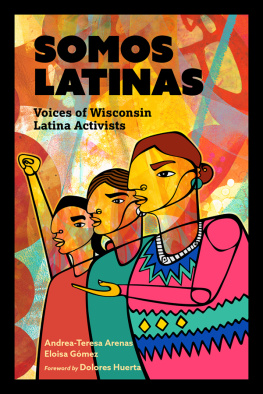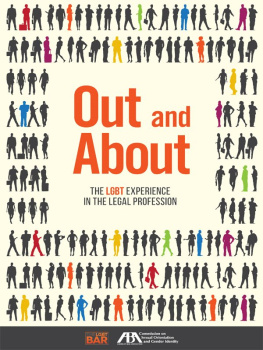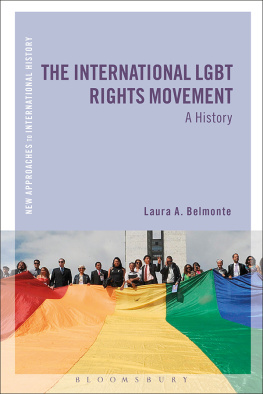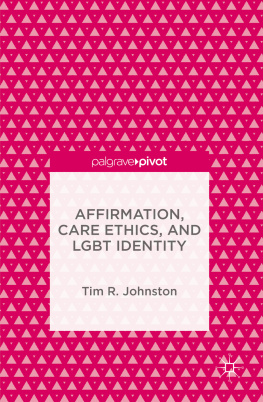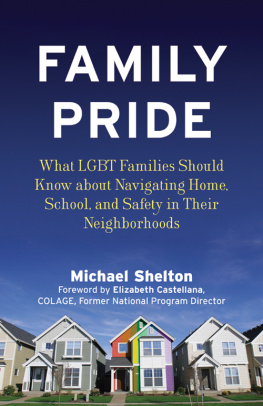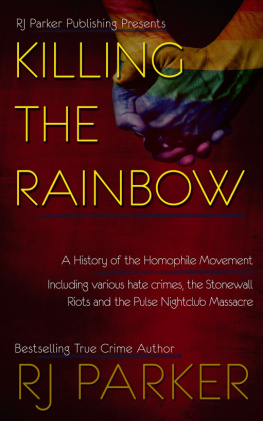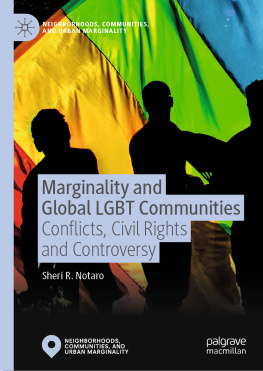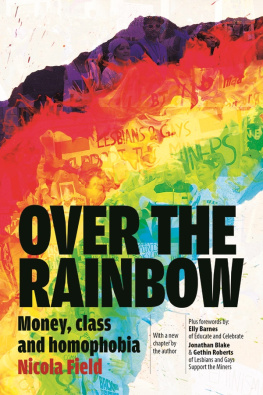Queer Brown Voices
PERSONAL NARRATIVES OF LATINA/O LGBT ACTIVISM
Edited by Uriel Quesada, Letitia Gomez, and Salvador Vidal-Ortiz

University of Texas Press
Austin
Copyright 2015 by the University of Texas Press
All rights reserved
First edition, 2015
Requests for permission to reproduce material from this work should be sent to:
Permissions
University of Texas Press
P.O. Box 7819
Austin, TX 787137819
http://utpress.utexas.edu/index.php/rp-form
LIBRARY OF CONGRESS CATALOGING-IN-PUBLICATION DATA
Queer brown voices : personal narratives of Latina/o LGBT activism / edited by Uriel Quesada, Letitia Gomez, and Salvador Vidal-Ortiz. First edition.
pages cm
Includes bibliographical references and index.
ISBN 978-1-4773-0232-3 (cloth : alk. paper) ISBN 978-1-4773-0730-4 (pbk. : alk. paper) ISBN 978-1-4773-0233-0 (library e-book) ISBN 978-1-4773-0234-7 (non-library e-book)
1. Hispanic American sexual minoritiesPolitical activityUnited States. 2. Gay activistsUnited States. 3. Sexual minoritiesIdentity. I. Quesada, Uriel, editor. II. Gomez, Letitia, editor. III. Vidal-Ortiz, Salvador, editor.
HQ76.8.U5Q44 2015
306.76089'68073dc23
2014046939
doi:10.7560/302323
To the memory of all Latina/o lesbian, gay, bisexual, and transgender activists, living and dead, who made their voices heard, whether in spaces of visibility or invisibility, and who devoted their loving energy to improving the lives of their communities
Contents
Letitia Gomez
Salvador Vidal-Ortiz
LUZ GUERRA
DENNIS MEDINA
JESS CHIREZ
LAURA M. ESQUIVEL
BRAD VELOZ
DAVID ACOSTA
LETITIA GOMEZ
MONA NORIEGA
GLORIA A. RAMIREZ
MOISS AGOSTO-ROSARIO
JOS GUTIRREZ
OLGA ORRACA PAREDES
WILFRED W. LABIOSA
ADELA VZQUEZ
Uriel Quesada
Preface
LETITIA GOMEZ
IN 2009 I WAS INSPIRED TO COLLABORATE WITH SALVADOR Vidal-Ortiz and Uriel Quesada on this book, primarily as a way to satisfy my personal need to document the period of LGBT Latina/o activism that I experienced in the 1980s and 1990s, la poca de oro (a phrase coined by Jos Gutirrez to describe this period of our history when Latina/o LGBT groups and organizations flourished in the United States and Puerto Rico). In my view, this period has been significantly underdocumentedand when it has been documented, the accounts have included errors about the people involved and the sequence of events. This book aims to offer new perspectives on the history of Latina/o activists and their organizations. The result of a collaborative effort between sixteen people, Queer Brown Voices covers more than three decades of activism and several geographical locations across the United States and Puerto Rico, from Los Angeles to San Juan. The personal narratives within give the reader a glimpse into the lives of the activists and reveal why it was important to them to participate in the LGBT Latina/o movement of the late 1970s, 1980s, and 1990s. My hope is that this collection will serve as an introductiona primer, if you willto what I anticipate will be a wealth of stories to be told in the future. Sadly, there are some stories that will never be told from the first person, because we lost so many gay Latinos to HIV/AIDS in the 1980s and 1990s and have lost several lesbian Latina activists in the years since. Fortunately, due to activists efforts to collect and archive their own history, we have access to documents and other materials that show firsthand proof of organizing efforts, even when the original voices are lost. Jos Gutirrezs chapter, in particular, shows the extent of activists efforts both to make history and to preserve it.
In 2007 Salvador, Uriel, and I were involved with the GLBT Latino History Project (LHP) in Washington, D.C. In 2009, out of our experiences of working on the LHP archives, planning to conduct oral histories, and facing the challenges of making such histories public, we began to collaborate on this project. In the process of identifying and finding potential contributors for this book, we first reached out to activists whom Salvador and I knew from our own previous activist work. We also received referrals from colleagues linking us to activists whom we did not know but felt would be important contributors, and we did research to identify activists in regions we wanted to include. We then contacted activists from across the United States and Puerto Rico with an invitation to join us in the process of writing and editing this work as well as to participate in interviews for oral history chapters. Initially, we asked all the contributors to address a few basic questions on an abstract, while as editors we discussed topic areas that we strongly felt needed to be included. Although we received many abstracts for the book, personal challenges, time conflicts, busy work schedules, and even editorial differences limited the completed chapters to a total of fourteen contributions. While it was a self-selected sample of activists, we intended to have as much gender parity, regional representation, and balance between lesbians, gay men, and transgender people as possible (none of the activists self-identified as bisexual). We also sought to have a balanced number of activists from the 1970s, 1980s, and 1990s.
Queer Brown Voices blends two types of first-person narratives. Six chapters are based on first-person essays written by our contributors, and eight chapters are based on oral history interviews (a number of them recorded in Spanish) that were all conducted and edited between June 2011 and June 2012. We used an interview guide to conduct the oral history interviews; it included questions very similar to those asked of the essayists so that the content between both formats would be consistent. The process of collecting the narratives was time-consuming because we were working with the contributors schedules and developing the format of the chapters as we received submissions. Our work included supporting the drafting of chapters (in the case of the first-person essays) and sharing and exchanging them back and forth, sometimes six to eight times. It was also challenging, at times, to set up an oral history interview date and time with potential contributors, especially because we wanted to have two editors present at each of the interviews. I particularly enjoyed the experience of conducting the oral interviews, because of their collaborative nature and the opportunity to reflect on the interviews with my coeditors afterward.
Regardless of whether activists wrote or we interviewed them, the editing process was extremely rigorous. We shared multiple drafts with each other before sending a draft back to a contributor. We also held numerous conference calls to debate some of the potential challenges in each and every one of the chapters you will read. As editors, we never questioned who was going to be the author, regardless of the modality; we decided that the activist was author. Our editorial role was to be actively engaged with the material and, in most cases, to provide a close line-by-line editing. In addition, because we were assisting, in a way, in the creation of a narrative and in identifying key points in the narrators lives, we asked for further information or suggested cutting down on some information that seemed less central to the narrative we were collectively producing. Similarly, we edited out information from the oral histories that was less relevant to the goals of the project.
As editors, we were committed to keeping the activists own voices and stories intact as much as we could. We also tried to see the drafts from our own present and past points of view: as scholar, activist, or scholar-activist; as U.S. Latina/o, third-generation Chicana, or immigrant; as gay, lesbian, or queer identified; as mestizo or light-skinned Latinas/os. We also asked the contributors for more detail and clarification, for fact verification, and for more analysis of the facts. Each discussion and the ensuing suggestions for rewriting gave us a clearer understanding of the history at each of the sites discussed by the activists. Uriel and I wrote the chapters based on oral history interviews, and Salvador and I translated the transcriptions of interviews conducted in Spanish, all the while keeping faithful to the voices of the activists, which was especially true in the translation of the oral histories from Spanish to English.
Next page

